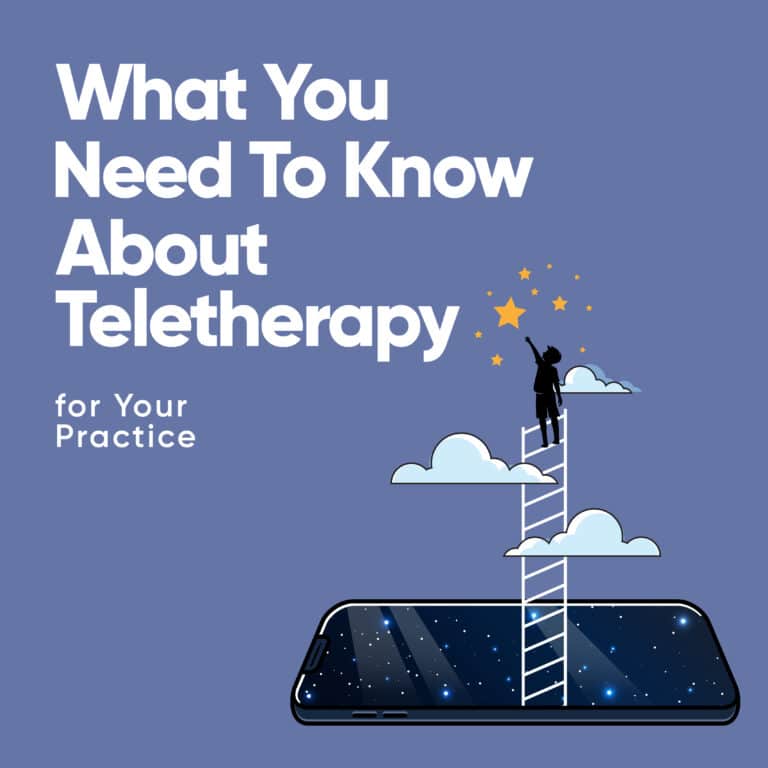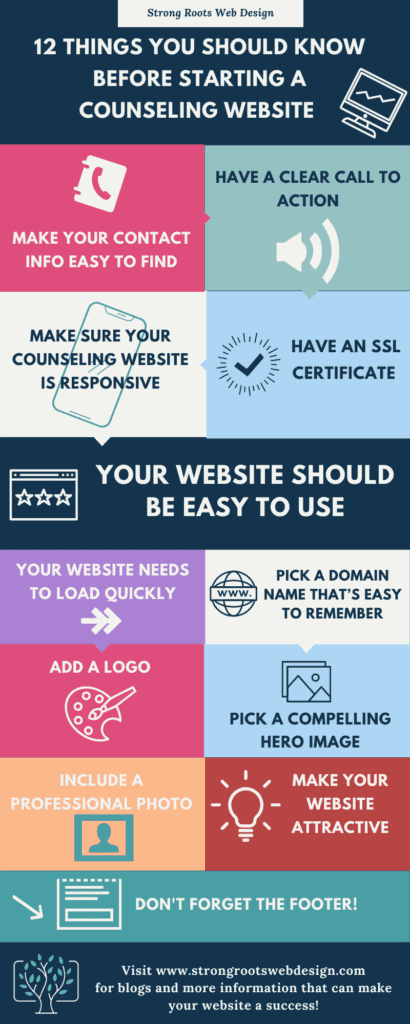
What You Need to Know About Starting a Telehealth Private Practice
As therapists, we want to give our clients more options to choose from when it comes to our services, so if you’re thinking about starting a telehealth private practice, then this article will help you decide on the matter. Read on to see five good reasons why you should do so.

Lockdowns, health protocols, spreading infections—to say that the past few years have been stressful would be an understatement. Lives have been turned upside down in almost an instant, and there’s just so much uncertainty in the air.
People are understandably anxious due to the restrictions in place, and this has led to an even greater demand for mental health services. But because of those same restrictions, patients are finding it more and more difficult to meet with their therapists and get the help they need.
And with the pandemic still raging, it’s clear that therapists need to come up with a way to address their clients’ needs without compromising their safety.
This is where teletherapy comes in. With this offer, therapists are able to meet with their clients without leaving the safety and comfort of their homes.
Not sure if you should offer it to your clients as well? Here are 5 good reasons about starting a telehealth private practice.
Reason # 1: Teletherapy lowers health risks
In normal situations, we wouldn’t even have to worry about any risk of infection just from meeting a client. But these are not normal times. And with a pandemic ongoing, it’s always best to stay on the safe side of things.
By offering teletherapy services to your clients, you get to lower the chances of exposure to infections, keeping you and your client’s health safe. In fact, the chance of contracting or transmitting the virus virtually is so low, it’s practically non-existent.
Opting to meet clients virtually rather than face-to-face also allows you to connect even if either of you is feeling unwell. Plus, it reduces whatever anxiety your client may feel about in-person meetings.
Reason # 2: It offers convenience to your clients
As private practitioners, we do our best to put our client’s needs and preferences first and foremost over everything. That includes offering them various options for their appointments.
Teletherapy is becoming more and more popular these days, not only because it means zero health risks, but because it also allows for convenience. Just think, with teletherapy, they can easily schedule or see you for an appointment with just a few taps on their devices. Really practical, especially in situations that call for immediate assistance from you.
It’s no wonder, then, that teletherapy is becoming more and more popular these days. In fact, it’s a trend that is likely to continue even after the pandemic is over. That means, therapists who do not offer teletherapy services are most likely to lag behind other therapists in the industry who do.
We don’t want that to happen, do we?
Reason # 3: Starting a Telehealth Private Practice makes things more efficient for you
Another reason why starting a telehealth private practice for your clients is a smart move is that you get to save more time each day just by seeing clients virtually. Because there’s no need for travel time in between appointments, you can see more clients.
Plus, going virtual for your practice means you get to save on your resources as well! For example, rather than printing tons of documents each day, you can simply get your clients to fill out the forms online instead.
Reason # 4: Teletherapy can help you grow your client base
Offering teletherapy services would not only mean that you’re affording convenience for your existing clients; it also means that you’ll get to reach out to more people in your target audience.
With teletherapy, target clients who wouldn’t have been able to set an appointment with you face-to-face due to their locations can now meet with you in a matter of minutes. You won’t have to worry about their travel time, and so their geographic location is no longer an issue.
In other words, you get to grow your market geographically, making up for any revenue you might have lost during the early part of the pandemic. Now how does that sound?
Reason # 5: It lowers the number of cancelled appointments
Sometimes, clients cancel their scheduled appointment with you because they don’t feel well enough to travel and see you. Other times, clients need to cancel because they had to travel unexpectedly, making it impossible for them to see you in person.
While it’s normal for clients to cancel appointments from time to time, it does take its toll on the financial aspect of our private practice, doesn’t it? After all, missed appointments mean lost income.
With teletherapy, however, your clients can still opt to push through with their appointments, even when they don’t feel well enough to travel. And even if they do have to travel unexpectedly, they can still meet with you virtually. So considering teletherapy for your practice is really a wise, financial decision on your part.
Starting a Telehealth Private Practice

Now that you’ve decided about starting a telehealth private practice, you’re probably wondering, ‘How do I actually take the first step?’
Check out the list below of all the tools you’ll need to prepare so you can start offering teletherapy services to your clients.
- A secure platform where you can meet and chat with your clients online. (e.g. Zoom Meetings, Google Meet, and Microsoft Teams)
- An online scheduling platform (e.g. Calendly and Google Calendar)
- An online resource that allows you and your clients to send and sign documents (e.g. Adobe Acrobat and Small PDF)
- A platform for secure payment processing (e.g. Stripe, Paypal, and Wise)
- A platform to automate Email/SMS appointment reminders (e.g. Google Calendar and Appointfix)
Going Beyond Teletherapy

There’s more to establishing your private practice than just offering teletherapy services. It also involves learning how to build your online presence.
True, just offering teletherapy services can already help you boost your revenues and increase your client base. But being visible to your target market online will help you reach more of your target audience better. And what better way to build your online presence than by having your own therapy website?
If you already have a website for your practice, that’s great! Now all you have to do is make sure it’s kept optimized to bring in more clients your way.
But whether you need your website built from scratch or you need to revamp everything to make it more client-friendly, I’m here to help.
Click here to book a call with me and let’s talk about how I can help you serve your clients better online!
Did you like this post? Share it!
Related Reads for Starting A Therapy Business
- Counseling Practice Names for Branding and Website
- How to Start a Therapy Practice Online- How To Offer It Successfully
- How to Choose Your Therapy Niche and Get More Clients
- Are Paid or Free Therapist Directories Worth It? A Definitive Guide
- How to Create A Therapist Directory Listing that Gets You Results
- What You Need to Know About Starting a Telehealth Private Practice
- Importance of Getting Professional Design Services for Counseling Websites
- 31 Engaging Content Prompts For Your Therapy Biz
- Branding Your Mental Health Private Practice
- Your Therapist Logo: The Ultimate Guide
- Quotes for Therapists – Inspirational and Uplifting Quotes for Therapists
- 10 Therapist Podcasts You Should Be Listening to in 2024
- Starting a Private Practice in Counseling!
- 12 Things You Should Know Before Starting a Counseling Website
- Finding Joy in Your Practice: 4 Things to Learn from Donald Altman
- Therapist Logo Ideas – Find Inspiration in the World Around You!
- Eight Questions to Ask Yourself When Starting Private Practice in Psychology
Need any of the following? Contact us!
Here are some Sample Websites We’ve Created:
Check out our Portfolio for more!
Hi! I’m Sarah.
I help counselors and therapists have a bigger impact on the world through better client connection. I do this by creating beautiful visuals and strategically designed websites.

















